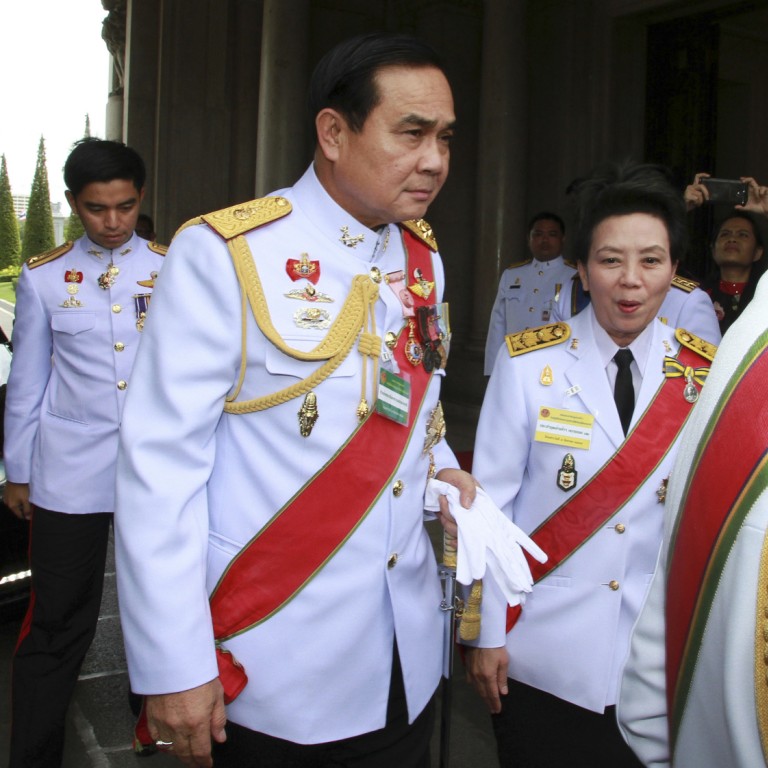
Asean silence over Thai coup reflects regional needs and realities
Simon Tay says its stance is partly due to Thailand's political and economic role in the region
The recent military coup in Thailand that ousted the government of Yingluck Shinawatra has attracted concern and controversy. Very visibly, the US, the European Union and Australia have criticised the situation, called for elections to be held as soon as possible, and imposed measures to express their disapproval.
Others have, however, remained quieter on the issue, notably the Association of Southeast Asian Nations and China.
From the US, high-level criticism came from Secretary of State John Kerry and Defence Secretary Chuck Hagel. America suspended almost one-third of its military aid. This amounts to just US$3.5 million but is a significant signal, given that Thailand is a strategic non-Nato ally.
The Europeans suspended official visits to the country as well as the broad Partnership and Cooperation Agreement, while Australia downgraded diplomatic and military ties. Much of this is to be expected.
Western powers often champion their "values". This is despite the reality that the US has co-existed with and assisted non-democratic regimes and even dictatorships when felt necessary.
The reaction among Asean neighbours has generally been more understanding. Most regard the events as an internal matter and none have imposed sanctions.
Asean's position was not automatic, however.
The previous Thai coup of 2006 did provoke more questioning. Moreover, the Asean Charter, adopted in 2008, enshrines principles of democracy and constitutional government.
So what accounts for Asean's response? Concerns and options have clearly been weighed, and the factors considered may be relevant to others.
First, there is no illusion that it is easy to establish practical ground rules; they will be cautious about casting the first stone, especially when the intervention happened after months of protest and intransigence had made the country almost ungovernable and the economy had dipped sharply.
Second, although democratic principles are preferred, most in Asean will wait to see how the National Council for Peace and Order performs. Past military interventions in Thailand have been relatively brief, and the council aims to establish a cabinet shortly and then work to bring back stability and economic growth. If that can be done and the country returned in short order to an elected government under a reformed constitution, many will feel the intervention was not without benefits.
One bellwether will be the acceptance among Thais.
While there have been small and sporadic protests, a July survey shows that almost 80 per cent across the country accept that the council should oversee the reform process. Business confidence has also bounced back somewhat.
A third factor is Thailand's regional role. It is the region's second-largest economy and a key actor in Asean's plan for economic integration by 2015. The country is also a significant political player and coordinator for the group's dialogue with China during this time of sensitivity over maritime claims.
The country is well positioned for this role - as a non-claimant to the dispute, an ally of the US, destination for Japanese investments, and a friend to China. There is a need to help maintain that balance.
In this coup, China's already considerable influence could increase further. Notably, Thailand's military leadership visited Beijing in June to consult on closer cooperation. Further, Thailand's now reported to have approved a US$23 billion transport project that will see two high-speed railways link up directly with China by 2021.
In contrast, newspaper reports suggest the US has yet to decide whether it wants to go ahead with Operation Cobra Gold, key regional military exercises hosted by Thailand. There may be no immediate danger of pushing Bangkok into China's sphere. But if Western condemnation and sanctions grow harsher, this is not impossible. Democratic preaching and sanctions, after all, led Myanmar down that path.
Even if principle must be upheld, perhaps Japan's position may suit. The Abe administration has called the military's decision "extremely regrettable" but did not suspend ties or impose penalties. Part of the calculation must be about Japan's business investments in Thailand.
The regional perspective does not ignore democracy but lends reality to principle. The longer lens of history too judges that, after almost a decade of in-fighting, Thailand is at a critical juncture in its political development. It is not automatic that Asean hasn't condemned Thailand's situation. The position might change if the situation turns for the worse. But understanding the current calculation of concerns and priorities can highlight factors for others who wish to fully participate in the region's affairs.

